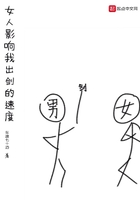This eagerness of the leading bourgeoisie to adopt, at least the outward show of Socialism, was caused by a great change that had come over the working classes of Germany. There had been ever since 1840 a fraction of German workmen, who, travelling in France and Switzerland, had more or less imbibed the crude Socialist or Communist notions then current among the French workmen. The increasing attention paid to similar ideas in France ever since 1840 made Socialism and Communism fashionable in Germany also, and as far back as 1843, all newspapers teemed with discussions of social questions. A school of Socialists very soon formed itself in Germany, distinguished more for the obscurity than for the novelty of its ideas; its principal efforts consisted in the translation of French Fourierist, Saint-Simonian, and other doctrines into the abstruse language of German philosophy. The German Communist school, entirely different from this sect, was formed about the same time.
In 1844, there occurred the Silesian weavers' riots, followed by the insurrection of the calico printers of Prague. These riots, cruelly suppressed, riots of working men not against the Government, but against their employers, created a deep sensation, and gave a new stimulus to Socialist and Communist propaganda amongst the working people. So did the bread riots during the year of famine, 1847. In short, in the same manner as Constitutional Opposition rallied around its banner the great bulk of the propertied classes (with the exception of the large feudal land-holders), so the working classes of the larger towns looked for their emancipation to the Socialist and Communist doctrines, although, under the then existing Press laws, they could be made to know only very little about them. They could not be expected to have any very definite ideas as to what they wanted; they only knew that the programme of the Constitutional bourgeoisie did not contain all they wanted, and that their wants were no wise contained in the Constitutional circle of ideas.
There was then no separate Republican party in Germany. People were either Constitutional Monarchists, or more or less clearly defined Socialists or Communists.
With such elements the slightest collision must have brought about a great revolution. While the higher nobility and the older civil and military officers were the only safe supports of the existing system; while the lower nobility, the trading middle classes, the universities, the school-masters of every degree, and even part of the lower ranks of the bureaucracy and military officers were all leagued against the Government; while behind these there stood the dissatisfied masses of the peasantry, and of the proletarians of the large towns, supporting, for the time being, the Liberal Opposition, but already muttering strange words about taking things into their own hands; while the bourgeoisie was ready to hurl down the Government, and the proletarians were preparing to hurl down the bourgeoisie in its turn; this Government went on obstinately in a course which must bring about a collision. Germany was, in the beginning of 1848, on the eve of a revolution, and this revolution was sure to come, even had the French Revolution of February not hastened it.
What the effects of this Parisian Revolution were upon Germany we shall see in our next.
LONDON, September, 1851.
Footnotes [1] "The Rhenish Gazette." This paper was published at Cologne, as the organ of the Liberal leaders, Hansemann and Camphausen. Marx contributed certain articles on the Landtag, which created so great a sensation that he was offered in 1842--although only 21 years of age--the editorship of the paper.
He accepted the offer, and then began his long fight with the Prussian Government. Of course the paper was published under the supervision of a censor, but he, good, easy man, was hopelessly outwitted by the young firebrand. So the Government sent a second "special" censor from Berlin, but the double censorship proved unequal to the task, and in 1843 the paper was suppressed.














